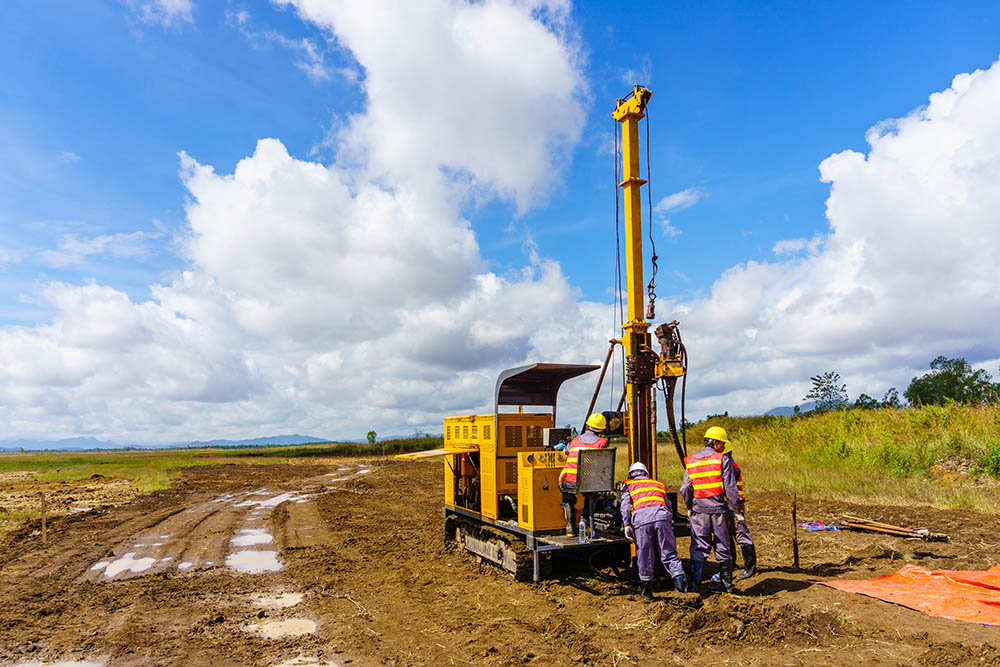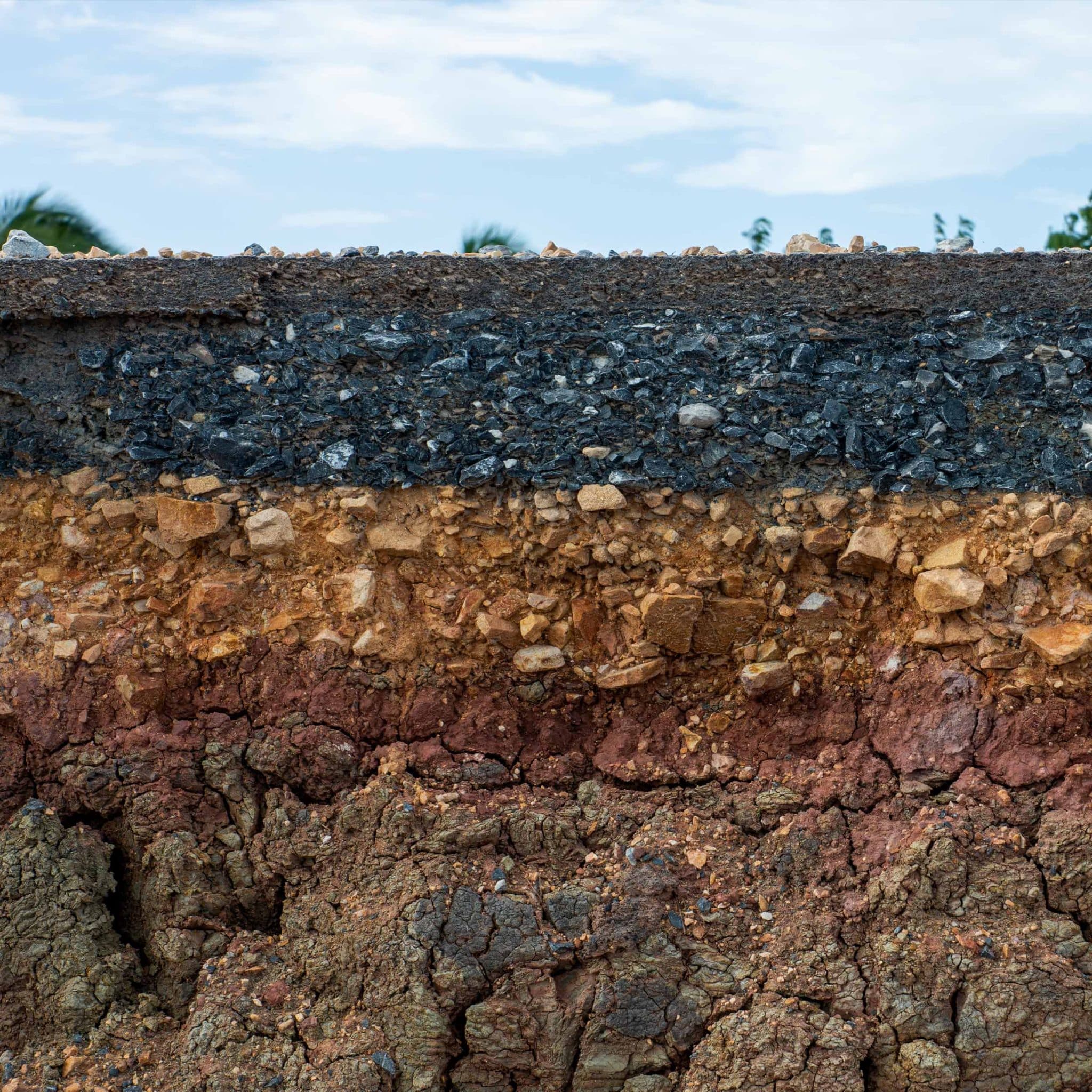Why All About Geotechnical Engineering Matters in Today's Framework Development
Why All About Geotechnical Engineering Matters in Today's Framework Development
Blog Article
The Relevance of Geotechnical Design in Resolving Environmental Challenges and Enhancing Building And Construction Security
Geotechnical design offers as a foundation in the intersection of ecological stewardship and building safety, giving essential insights right into the behavior of soil and rock under different conditions. By implementing critical site examinations and customized mitigation actions, geotechnical engineers play a crucial duty in protecting both human lives and eco-friendly stability.

Function of Geotechnical Engineering
Geotechnical engineering plays a crucial role in the layout and building and construction of framework by resolving the actions of soil and rock products under different conditions. This area of design is essential for recognizing the communication between structures and the ground, which includes establishing the load-bearing capacity of soil, assessing security, and anticipating prospective settlement or failing.
Geotechnical engineers are liable for carrying out website investigations, which involve sampling and screening dirt and rock to collect data on their physical and chemical residential or commercial properties. This info is vital for making structures, retaining walls, and other earth-retaining structures that make sure safety and long life. In addition, geotechnical design educates the option of ideal building techniques and products, therefore lessening threats connected with soil actions.
Moreover, the assimilation of geotechnical design principles right into city planning and ecological monitoring is important for attending to obstacles such as ground contamination and groundwater monitoring. By comprehending geotechnical elements, designers can establish sustainable options that enhance the resilience of framework versus all-natural risks, while also advertising environmental stewardship. Inevitably, the duty of geotechnical engineering is essential for accomplishing risk-free, sturdy, and environmentally aware building practices.
Dirt Erosion Reduction
Dirt disintegration postures a significant danger to both environmental security and facilities stability, affecting approximately 24 billion lots of fertile soil lost every year worldwide. This sensation is aggravated by aspects such as logging, urbanization, and poor agricultural techniques. Geotechnical design plays a crucial role in developing effective dirt disintegration mitigation strategies that secure both the environment and building jobs.
One strategy requires the implementation of erosion control approaches such as vegetation growing, which stabilizes dirt with origin systems. Additionally, the building of preserving walls and terraces can properly decrease surface area drainage and safeguard vulnerable locations from disintegration. Appropriate drainage style is likewise important; it minimizes water accumulation and directs excess drainage away from critical frameworks.
Furthermore, geotechnical designers employ dirt stablizing methods, such as the application of geotextiles and biodegradable floor coverings, to enhance dirt communication and protect against destruction - geotechnical engineer description. Routine monitoring and analysis of erosion-prone websites allow timely interventions, guaranteeing long-lasting sustainability. By incorporating these strategies, geotechnical engineering not just minimizes the influences of soil erosion yet also adds to the strength of facilities versus ecological challenges, eventually promoting a safer and extra lasting built setting
Groundwater Protection Strategies
Groundwater works as a vital resource for drinking water, farming, and commercial processes, making its protection essential for ecological sustainability and public health. Effective groundwater protection approaches are crucial in alleviating contamination threats and guaranteeing the durability of this resource.

Regular monitoring of groundwater high quality is also crucial, making it possible for very early discovery of contamination resources and facilitating prompt removal efforts. Employing advanced technologies, such as geophysical studies and remote noticing, aids in recognizing potential threats to groundwater books.
Moreover, public education and stakeholder interaction are vital, fostering area assistance for groundwater security efforts. geotechnical engineer description. By combining regulatory actions, technical developments, and neighborhood participation, we can create a comprehensive framework that safeguards groundwater resources while promoting sustainable advancement and building and construction methods
Landslide Threat Administration
Landslides present substantial hazards to both human security and infrastructure, making effective danger management methods vital. Geotechnical engineering plays a crucial role in determining, evaluating, and mitigating landslide threats. An extensive understanding of slope find more stability, soil mechanics, and hydrology is crucial for establishing reliable risk management strategies.
The very first action in landslide threat management involves detailed website examinations, which include geological mapping and dirt screening. These examinations aid engineers evaluate the possibility for landslides by recognizing vital aspects such as slope angles, dirt make-up, and water content. Making use of advanced modern technologies such as remote picking up and geophysical surveys can improve the accuracy of these assessments.
As soon as dangers are determined, appropriate reduction procedures can be implemented. These might include engineering remedies such as keeping walls, drain systems, and incline stabilization strategies. Monitoring systems ought to be developed to spot indications of ground activity and modifications in water levels, allowing for aggressive interventions.

Enhancing Construction Safety
Building websites typically offer a myriad of threats that can jeopardize worker safety and job integrity. Geotechnical design plays a crucial role in enhancing building and construction safety and security by supplying necessary understandings into subsurface conditions. With comprehensive soil and rock evaluation, geotechnical designers can identify possible threats, such as dirt instability, groundwater issues, and seismic susceptabilities, which might jeopardize the security of building activities.
Carrying out geotechnical services, such as correct structure layout and the use of preserving structures, minimizes these risks significantly. These options not only make certain the security of the frameworks being built yet additionally create a more secure working setting for building personnel.
Furthermore, cultivating a society of safety and security through training and adherence to established security methods even more improves building and construction site security. By integrating geotechnical competence right into the preparation and implementation phases, building and construction projects can achieve greater safety requirements, eventually protecting workers and making certain effective task completion.
Final Thought
In final thought, geotechnical design serves as a crucial technique in tackling ecological difficulties and promoting building safety. With efficient soil erosion mitigation, groundwater security approaches, and landslide threat management, geotechnical engineers contribute to the development of resistant framework.
Geotechnical engineering offers as a additional hints keystone in the intersection of ecological stewardship and construction security, giving crucial understandings into the behavior Bonuses of soil and rock under various problems. Geotechnical engineering notifies the selection of proper construction approaches and products, consequently decreasing threats linked with soil habits.
Geotechnical engineering plays a crucial function in creating efficient soil disintegration reduction techniques that guard both the atmosphere and construction jobs.
In addition, geotechnical engineers use soil stablizing methods, such as the application of geotextiles and naturally degradable mats, to improve soil communication and prevent destruction. Through thorough soil and rock analysis, geotechnical engineers can identify potential threats, such as soil instability, groundwater concerns, and seismic vulnerabilities, which might compromise the safety and security of construction tasks.
Report this page